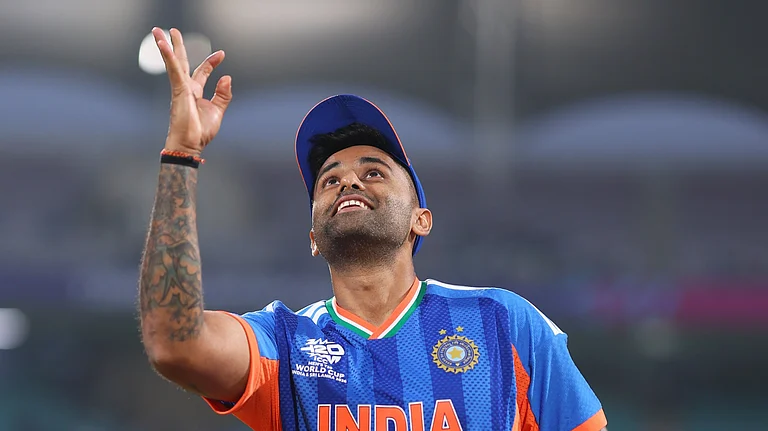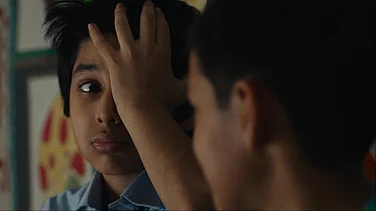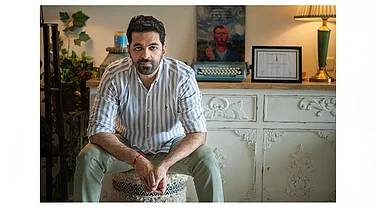Gajraj Rao is one of the most prolific names in today’s film industry. He has played numerous characters and all of them are so strikingly different from one another. He has now taken the plunge into the world of audio series with ‘Chitthiyaan’.
Talking to Prateek Sur, Gajrao Rao opens up about how different working on an audio series was from working in films. Also, as the show is called ‘Chitthiyaan’, he reveals his fond memories of writing letters and whether or not today’s generation is missing out on that art form of writing letters. Excerpts from the candid chat:
Tell us how it was working on this audio fiction series.
Working on this audio fiction series has been an enriching and fulfilling experience. It provided me with an exciting opportunity to venture into the world of podcasting, a medium I hadn’t explored before as an actor. What sets podcasting apart is its unique reliance on the power of words and sound to create compelling narratives. This project challenged me to use my voice as the primary instrument for conveying emotions and storytelling. The collaborative effort with the dedicated team at IVM Podcasts, along with the invaluable guidance from the director, added depth to the project. It’s been a journey of learning, creativity, and a fresh way of connecting with our audience.
Did you recall any fond memories of the past like writing letters and all?
Certainly, I have cherished memories of the past, particularly the heartfelt tradition of writing letters. I vividly remember a time when sending handwritten letters and greeting cards was a meaningful part of our lives. On special occasions such as Diwali or Holi, I used to craft personalized messages on postcards, sending them to close friends and family. This practice created a unique and personal connection, and those who received these handwritten letters still cherish the warmth they conveyed. It’s a practice that added a special touch to our relationships.
Sending handwritten letters seems antiquated now especially when social media is so easily accessible. What do you have to say about it?
Undoubtedly, the world has undergone significant changes with the advent of technology, making social media easily accessible for communication. However, I don’t view this as an ‘either-or’ scenario. Modernization and adapting to the times are essential aspects of our evolving society. Just as there was a time when handwritten letters were the norm, today, we have the convenience of social media. It’s not about one being superior to the other; rather, it’s about coexistence. Some individuals find satisfaction in composing articles, books, or scripts on their laptops, while others, even in their 20s, derive joy from writing with pen and paper. The key is to embrace both forms of communication as long as they preserve the essence of meaningful connections.
Do you feel children should be taught to pen handwritten letters?
It’s crucial to recognize that we live in a time of diverse preferences. While technology has become an integral part of our lives, it’s not about compelling the younger generation to exclusively adopt handwritten letters. Instead, it should be about inspiring them to explore various means of communication. If someone believes handwritten letters convey emotions more effectively, they should pursue it. However, building friendships through WhatsApp, Telegram, or any other platform is equally valid. The essence lies in nurturing relationships, irrespective of the medium chosen.
Do you remember writing letters to your loved ones or getting one?
Yes, I have fond memories of writing letters to my friends. Back in the 7th or 8th grade, I used to exchange letters with pen pals from different parts of the world, often through magazines like Nandam or Madhu Muskan. These letters weren’t just about words; they were about sharing laughter, inside jokes, and creating lasting memories with friends.
What can listeners expect from the show?
Listeners can anticipate engaging stories that delve into human relationships, both ordinary and extraordinary. These narratives aren’t focused on grand revolutions but rather on the subtle nuances and dynamics that shape our connections. The show brings to life relatable moments, the ebb and flow of relationships, and the emotions that accompany them.
What made you take up a platform like audio to be on, and are you a podcast listener?
Certainly, I’ve been an avid podcast listener for the past three to four years, and my interest in podcasts grew significantly during the COVID-19 pandemic. Among my favourites, Cyrus Broacha’s podcast ‘Cyrus Says’ stands out, and I’ve listened to nearly all of his episodes. Additionally, I’m a fan of the ‘Habit Coach’ podcast and Anubhav Pal Roy Kapoor podcasts. There are numerous intriguing podcasts out there that provide valuable content, making them enjoyable. This medium has become indispensable, especially as our screen time has increased significantly. Podcasts allow us to multitask, such as listening during my daily walks.
To take up an audio fiction series for any specific reason also since the concept is different?
‘Chitthiyaan’ is a profoundly meaningful project for me because, at one point in my life, I used to write letters. Even today, on special occasions or when I feel the need to express my emotions to loved ones, I still write letters. Receiving letters from someone also brings me immense joy and connection. So, ‘Chitthiyaan’ resonated with me on a personal level. The concept of exploring human relationships through audio fiction intrigued me, as it offered a unique and creative storytelling platform.
Challenges or the entire process while making this?
Working on this project was an incredible journey. I had the pleasure of collaborating with the talented team at IVM, my director, and my co-actors. There were no significant challenges; instead, it was a tremendous learning experience. We explored new aspects and perspectives, making it a fulfilling endeavour.
As a listener if asked what are the takeaways from different episodes and any of the stories from the episodes which are close to your heart?
While I appreciate your curiosity, I’d like to encourage our listeners to explore the stories themselves. It’s about the experience of hearing these tales firsthand. Just like serving a meal on a plate, I’d suggest our audience savour the stories and, if they find them delightful, offer their support and encouragement. If there are areas where we can improve, we welcome their feedback to enhance future seasons.
How different is this as a performer for you from being active in front of the camera to focusing on audio for ‘Chitthiyaan’?
Podcasting and traditional filmmaking are distinct in several ways. In podcasting, the script takes centre stage and plays a paramount role. The responsibility of conveying the narrative falls heavily on the words and sound design, as there are no visuals to rely upon. It’s a medium that demands a deep appreciation for the art of storytelling through the auditory senses. Crafting audio stories is a unique art form, and during this journey, I came to realize the intricacies involved in maintaining the audience’s engagement without the visual aids that films provide. It’s about finding that delicate balance between delivering a compelling story and ensuring that the content remains intellectually stimulating.
What next can we see coming from your end?
Currently, I’m weighing my options based on the feedback and appreciation I’ve received for my work. In the future, you can expect more audio podcasts and similar projects from me if the opportunity arises.























